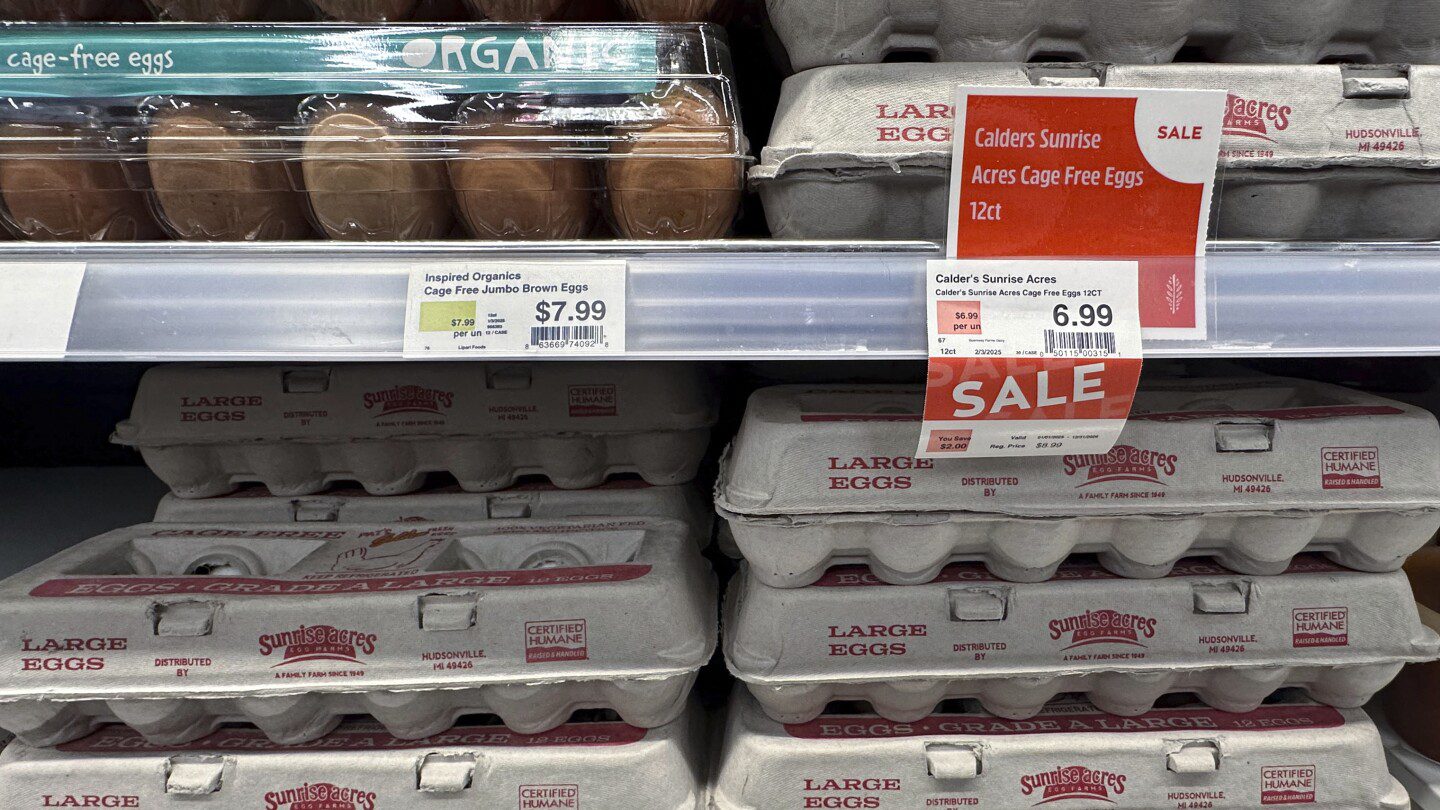
The rising cost of eggs is further compounded by the current bird flu situation, making them increasingly difficult to find. When eggs are available, many retailers are now limiting the quantity each customer can purchase.
Eggs have become such a valuable item that there have even been reports of thefts where criminals treat them as if they were precious commodities.
This situation is unlikely to improve soon, as the virus continues to evolve, infecting more birds, other animal species, and even humans. Any illness among chickens or turkeys results in the slaughter of the entire flock to mitigate the spread of the disease.
While these shortages can be limited to specific regions, the unpredictability of outbreaks at large farms housing millions of birds can lead to significant supply disruptions. Consequently, egg prices have surged.
Jose Castillo, co-owner of Norma’s Sweets Bakery in New Orleans, shared that the escalating egg prices are making it challenging to keep menu items like Cuban sandwiches and king cakes affordable. “It’s painful, man. The cost of eggs is outrageous,” Castillo remarked. “We used to pay around $35 to $40 per case, but now it’s jumped to approximately $118 to $120.”
Availability Challenges
Across the nation, more shoppers are encountering empty shelves where eggs used to be stocked. Many are now resorting to visiting multiple stores or reaching out to local farms to secure their egg supply.
Since the onset of the bird flu outbreak in 2022, the poultry industry has suffered immensely, with nearly 158 million birds culled, primarily affecting egg-laying hens. This drastic reduction impacts egg availability and drives up prices. However, with over 300 million chickens producing eggs for consumers, the industry typically manages to absorb the loss of a few million birds without significant issues.
Major disruptions occur when larger numbers must be culled. In just the previous month, over 23 million birds were killed, which followed up on the slaughter of 18 million in December. Moreover, when farmers have to eliminate entire flocks, it takes one to two months to restock since carcasses need proper disposal and barns require disinfection before new inventory can be introduced.
Purchase Limits Implemented
Trader Joe’s has instituted a limit of one carton per customer per day in all its locations nationwide. The company stated, “We hope these limits will allow as many customers as possible to purchase eggs during their visits to Trader Joe’s.”
Other retailers, such as Costco, Whole Foods, Kroger, and Aldi are also reportedly implementing various purchase limits, though they may not be uniform across all locations. A Kroger representative indicated that while there aren’t overarching limits at the corporate level, some regional divisions may be restricting purchases to two dozen per visit.
Walmart is currently not enforcing national caps on egg purchases, aside from larger bulk buys, which are limited to two per transaction. They stated, “Despite tight supply, we are collaborating with suppliers to meet consumer demand while attempting to keep prices manageable.”
The Rising Cost of Eggs
As of December, the national average price for a dozen eggs reached $4.15, more than double the summer pricing from 2023. Unfortunately, prospects for price relief seem dim, with the Agriculture Department forecasting a further 20% increase this year. The demand for eggs is expected to surge as Easter approaches, as they are staples for holiday meals and traditional egg hunts.
When the Bureau of Labor Statistics releases the latest data on Wednesday, it is likely that egg prices will have further escalated, although they are expected to remain below the peak of $4.82 reached in January 2023.
However, these averages mask the reality that many consumers are paying upwards of $10 for a dozen eggs in specific areas, especially for premium organic or cage-free varieties. Beyond grocery stores, restaurants are also experiencing increased costs for egg dishes, with establishments like Waffle House implementing a 50-cent surcharge per egg on their menus.
Theft on the Rise
With prices soaring, incidents of egg theft have also increased. Recently, Seattle police reported a theft of over 500 eggs from a restaurant, with two suspects captured on surveillance footage loading up boxes containing 540 eggs along with other food items before making their getaway, to the tune of approximately $780 in stolen goods.
Additionally, in Pennsylvania, authorities reported that 100,000 eggs were stolen from a distribution trailer for Pete & Gerry’s Organics, valued at around $40,000.
___
Contributors to this report include Associated Press reporters Claire Rush, Stephen Smith, and Manuel Valdes.









